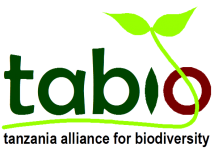- Client Name: TABIO
CROPS4HD/ALCE
Introduction
TABIO is among the implementing partners of the projects CROPS4HD/ALCE with support from AFSA and Swissaid. The description of each projects are provided below:
Consumption of Resilient Orphan Crops & Products for Healthier Diets (CROPS4HD)
The project “Consumption of Resilient Orphan Crops and Products for Healthier Diets (CROPS4HD)” is implemented through a consortium composed of SWISSAID, FiBL and AFSA in Tanzania, Niger, Chad and India over the period 01.07.2021-30.06.2025. CROPS4HD seeks to improve food security and nutrition of smallholder farmers, especially women, through sustainable use and conservation of farmers’ varieties/landraces, neglected and underutilized species respecting agroecological approaches[1]. The project is structured around three main components:
- PULL: Project activities make traditional crops and varieties more attractive by illustrating their nutritional benefits, with a particular focus on Neglected and Underutilized Seeds (NUS)[2].
- PUSH: The project supports farmers in improving their cultivation techniques in order to achieve good yields.
- POLICY: The goal is to strengthen farmers’ seed systems and protecting farmers’ rights to propagate, exchange and sell their seeds.
In Tanzania, project partners include the Tanzania Alliance for Biodiversity (TABIO) who has recruited a Seed expert to conduct and coordinate a number of key activities related to seeds including production, market and policies. The Seed experts works to support seed training, seed trials and community seed banks (PUSH component) and to support seed advocacy activities and local coordination of policy work (POLICY component). In doing so, the seed expert also maintain close cooperation with the PULL component.
Annex
Annex 1: 11 Neglected and Underutilized Species (NUS) under the CROPS4HD project
Tanzania (n = 11) | Cereals | Finger millet (Eleusine coracana) |
Fruits | Sugar apple (Annona squamosa), Bungo fruit (Saba comorensis) | |
Legumes | Bambara bean (Vigna subterranea) | |
Oil crops | Sesame (Sesamum indicum) | |
Pseudocereals | Amaranth leaves and Amaranth grains (Amaranthus spp.) | |
Vegetables | African eggplants (Solanum aethiopicum), African nightshade or Black nightshade (Solanum scabrum), Pumpkin (Cucurbita spp.), Spider plant (Cleome gynandra or Gynandropsis gynandra)), Sweet potatoes leaves (Ipomoea batatas) |
Agroecology for Livelihood Improvement, Climate change Adaptation and Environment Preservation (ALCE)
Introduction
This project is Implemented by the following partners: Swissaid, TOAM, SAT, I am organic Team: TABIO, SAT, TFCG and WSTECH from the year 2021 to 2024. This project has got 5 outcomes and related activities which are:
Outcome 1: Resilient farmer groups and organizations, adding value to their members and the communities.
Core Activity 1.1: Institutional strengthening and support to farmer groups
Outcome 2: Increased smallholder farmers’ production and productivity through diversified agro-ecological farming
Core Activity 2.1: Capacity building in agroecology for smallholder farmers.
Core Activity 2.2: Development of AgroEcology Production and Demonstration Farms (AEPDF).
Core Activity 2.3: Use of digital technologies to build networks, spread knowledge and manage data
Core Activity 2.4: Upkeep and utilization of agroecology demonstration plots
Core Activity 2.5: Promotion of indigenous seeds and Farmer Managed Seed Systems (FMSS)
Outcome 3: Improved smallholder farmers’ capacity to generate net income through productive agro-ecological value chains.
Core Activity 3.1: Support farmer groups and organizations to add value to their product and integrate value chains
Core Activity 3.2: Support the development of selling points for agroecological and organic produce and facilitate access to market for small holder farmers
Outcome 4: Increased resilience towards negative effects of climate change
Core Activity 4.1: Assess impact of climate change at local level and support solutions to increase resilience
Outcome 5: Increased awareness, interest and capacity for the preservation of the environment and sustainable use of its resources
Core Activity 5.1: Raise awareness about critical threats to the environment and support solutions for a sustainable use of environmental resources
NB: In this project, TABIO is involved in the promotion of indigenous seeds and Farmer Managed Seed Systems (FMSS).
[1] More information on: https://crops4hd.org/
[2] Selection of NUS for Tanzania is presented in Annex 1






 Today : 2
Today : 2 Yesterday : 3
Yesterday : 3 This Month : 5
This Month : 5 This Year : 1284
This Year : 1284 Who's Online : 0
Who's Online : 0